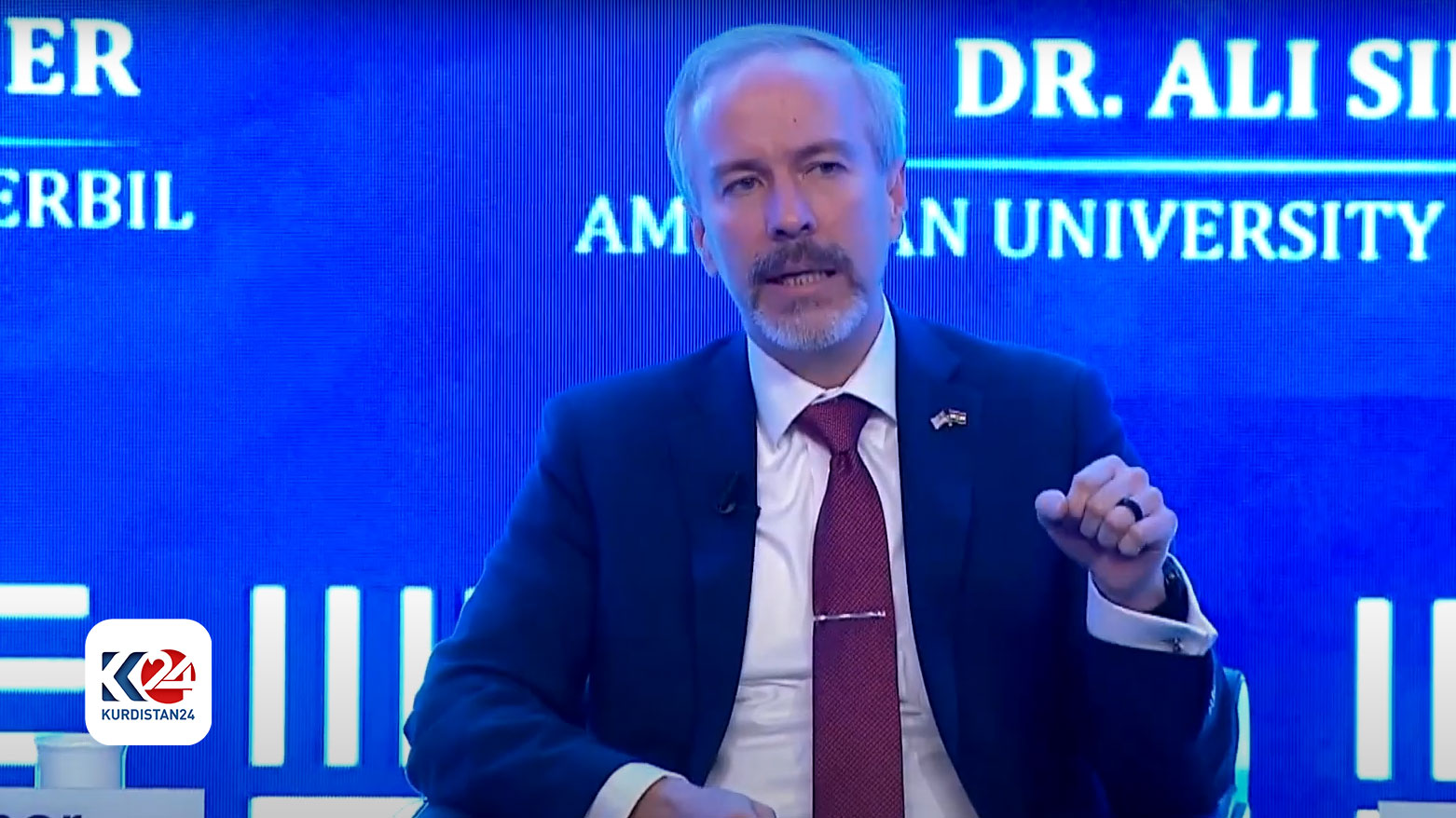US Consul General highlights economic pathways to peace at MEPS24
US CG Bittner praised the Kurdistan Regional Government's (KRG) anti-corruption action plan, calling it a “critical step” toward building citizen trust and fostering democratic governance.

Nov. 23, 2024
Erbil (Kurdistan24) – On the second day of the Middle East Peace and Security (MEPS24) Forum, U.S. Consul General Steve Bittner delivered an impactful speech during the session titled Pathways to Peace: De-escalation, Collective Security & Economic Integration. His remarks centered on the critical role of economic cooperation in fostering peace and stability in Iraq and the broader region.
Opening his speech in Kurdish, Consul General Bittner expressed his enthusiasm for engaging with participants.
“Min zor dlixoşm ke lêrem, ke em derfetem heye ke legel êwe qse dekem,” he said, meaning, “I am really glad to be here today, and to have the opportunity to discuss matters with you.” While humorously noting that his Kurdish skills are still developing, he set the tone for a candid and constructive dialogue.
Economic Integration as a Catalyst for Stability
Drawing on over two decades of experience in the U.S. State Department, much of it focused on economic issues, Bittner emphasized the importance of reorienting U.S.-Iraq relations towards economic collaboration.
He highlighted the 2008 Strategic Framework Agreement, which underscored the significance of economic, cultural, health, and environmental cooperation in the bilateral relationship.
“For much of the last 20 years, the U.S.-Iraq relationship has been dominated by security and political concerns. But we’ve been striving to shift the focus towards economic opportunities that bring tangible benefits to our peoples,” he explained.
Concrete Progress Through High-Level Coordination
Bittner pointed to significant milestones achieved under the Iraqi Prime Minister Mohammed Shia al-Sudani's administration. He detailed the outcomes of two High Coordination Committee (HCC) meetings, the first in 2023 and the second in 2024, which were exclusively dedicated to economic issues.
These meetings resulted in actionable agreements, including measures to reduce gas flaring in Iraq, enhance local electricity production, and decrease reliance on neighboring countries for natural gas imports. These initiatives not only improve public health outcomes in affected areas but also symbolize the depth of U.S.-Iraq economic ties.
Furthermore, the sessions facilitated critical commercial agreements, boosting trade and private sector partnerships between the two nations. “These efforts create the underlying conditions for stability and prosperity, which are essential for long-term peace,” Bittner noted.
The Role of Host Governments and Anti-Corruption Efforts
Acknowledging the importance of creating a conducive environment for foreign investment, Bittner stressed the need for transparency, rule enforcement, and anti-corruption measures. He praised the Kurdistan Regional Government's (KRG) anti-corruption action plan, calling it a “critical step” toward building citizen trust and fostering democratic governance.
“Democracy relies on the trust of its citizens,” he said. “Initiatives that enhance transparency and tackle corruption are fundamental to strengthening this trust and sustaining democratic institutions.”
Empowering Iraq's Youth
The U.S. Consul General also highlighted youth empowerment as a cornerstone of U.S. engagement in Iraq. Programs such as the Fulbright Scholarship, Access English programs, and leadership development initiatives offer opportunities for Iraqi youth to enhance their skills and contribute to their communities.
He noted that 300 Iraqi youths annually participate in U.S.-sponsored programs, gaining valuable exposure to American education and leadership models. Additionally, institutions like the American University of Kurdistan (AUK) and others play a pivotal role in fostering American-style higher education in Iraq.
A Vision for Peace Through Collaboration
Bittner concluded by reiterating the U.S. commitment to strengthening economic, educational, and cultural ties with Iraq and the Kurdistan Region. “Economic prosperity and stability are not just beneficial—they are fundamental to achieving the collective security and peace we are discussing today,” he stated.
As MEPS24 continues, Bittner’s address underscores the critical importance of economic pathways in fostering de-escalation and regional security. His remarks serve as a reminder that economic integration is not merely a tool for development but a cornerstone for peace and cooperation.